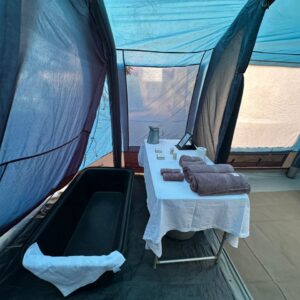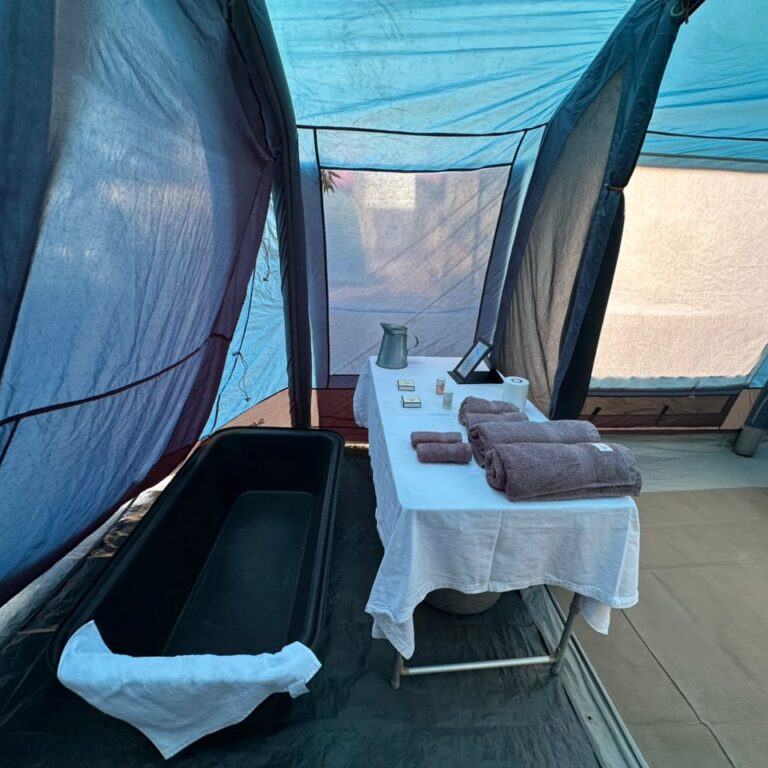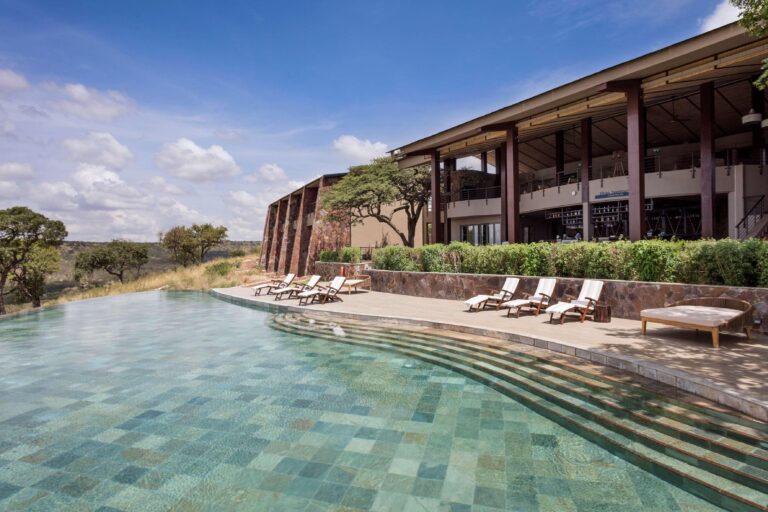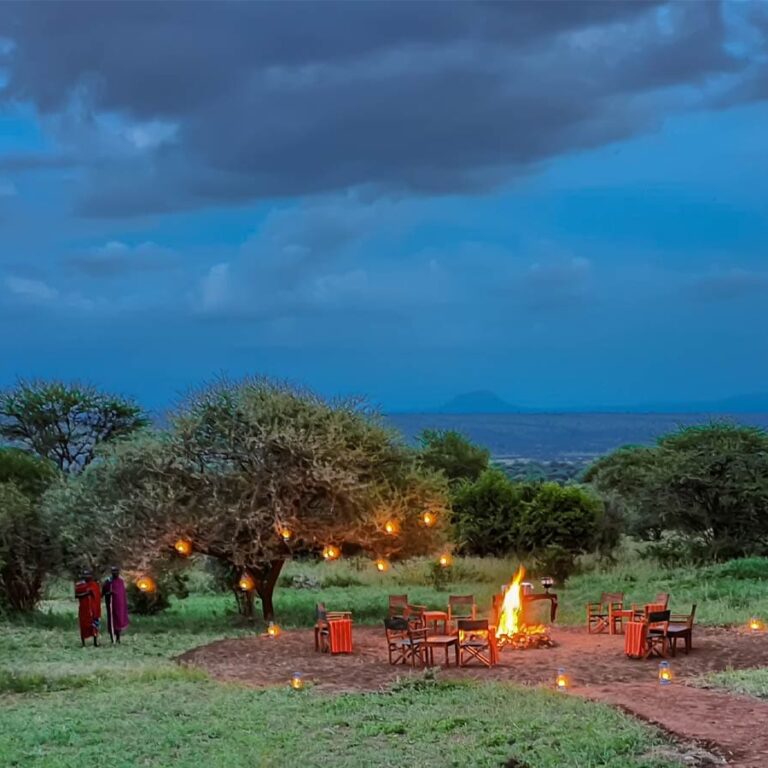Summiting with Soul: Climbing Kilimanjaro Sustainably and Responsibly. The majestic silhouette of Mount Kilimanjaro, Africa’s rooftop, piercing the Tanzanian sky, ignites a sense of adventure in the hearts of mountaineers and dreamers alike. The allure of conquering its snow-capped peak, traversing diverse ecosystems, and spot nice stunning views is undeniable. However, as we set our sights on this formidable giant, a profound responsibility accompanies our ambition: to ascend in a way that honors its natural grandeur, respects its people, and minimizes our impact.
Climbing Kilimanjaro sustainably and responsibly is not merely an option; it’s an ethical imperative. It’s about ensuring that this natural wonder remains pristine for generations to come and that the communities who live in its shadow benefit from our presence. Let’s chart a course towards a Kilimanjaro ascent that is both personally and socially conscious. Check this: How to Book a Sustainable African Safari: Ultimate Guide
1. Choosing a Responsible Tour Operator: Your Partner in Ethical Ascent
The cornerstone of a sustainable Kilimanjaro climb lies in selecting a tour operator who genuinely prioritizes ethical and environmentally sound practices. They are the orchestrators of your journey, and their commitment will significantly influence the impact of your expedition. Seek out operators who demonstrate:
✓Fair treatment of porters. This is paramount. Look for operators who adhere to or exceed the Kilimanjaro National Park Authority (KINAPA) guidelines for porter wages, weight limits, accommodation, and meals. Inquire about their policies and ensure they are transparent. ✓Environmental stewardship. Do they have clear policies on waste management, water conservation, and minimizing their ecological footprint on the mountain? ✓Support for local communities. Do they employ local guides, cooks, and porters, source supplies locally, and contribute to community development initiatives? ✓Adherence to park regulations. Do they strictly follow KINAPA rules and regulations regarding trail use, camping, and wildlife interaction? ✓Transparency and accountability. Are they open about their sustainability practices and willing to answer your questions? ✓Relevant certifications (if any). While not always a definitive indicator, certifications from sustainable tourism organizations can be a positive sign. By meticulously choosing a responsible tour operator, you align yourself with a partner who shares your values and ensures your climb contributes positively to the Kilimanjaro ecosystem and its people. Book Top 5 Ethical African Safari Experiences.
2. Treat Porters with Respect: The Unsung Heroes of the Mountain
The porters are the backbone of any Kilimanjaro expedition. These incredibly strong and resilient individuals carry essential supplies, ensuring the safety and comfort of hikers. Treating them with dignity, respect, and fairness is non-negotiable. Demonstrate your respect by:
✓Ensuring your operator adheres to fair wages and working conditions. Advocate for their well-being by choosing reputable operators. ✓ Keep your luggage within the stipulated weight limits. Overburdening porters is unacceptable and can lead to injury. ✓Being mindful of their needs. Understand that they work incredibly hard in challenging conditions. Acknowledge their efforts with a smile and a word of thanks. ✓Tipping generously and appropriately. Recognize their vital role with a fair gratuity at the end of the climb. Discuss tipping etiquette with your tour operator beforehand. ✓Ensuring they have adequate gear and shelter. Responsible operators provide their porters with proper clothing, footwear, and sleeping arrangements. Remember that your Kilimanjaro experience would not be possible without the dedication and hard work of the porters. Treat them with the respect they deserve. Check this: Is It Possible To Plan A Responsible Serengeti Safari? A Comprehensive Guide
3. Reduce Your Environmental Impact: Leaving No Trace
Mount Kilimanjaro is a precious natural resource, and it is our responsibility to minimize our impact on its fragile ecosystems. Adhering to the principles of Leave No Trace is crucial. Minimize your environmental footprint by:
✓ Pack out everything you pack in. This includes all trash, food wrappers, and personal waste. Do not leave anything behind on the mountain. ✓Using designated toilet facilities. These are strategically placed along the routes. If none are available, follow proper Leave No Trace guidelines for human waste disposal, burying it far from water sources. ✓Avoiding the use of single-use plastics. Bring a reusable water bottle and water purification tablets or a filter. Say no to plastic bags and opt for reusable alternatives. ✓Staying on marked trails. Venturing off-trail can damage fragile vegetation and contribute to erosion. ✓Respecting wildlife (though encounters are rare at higher altitudes). Observe any animals from a distance and never feed them. ✓Reduce noise pollution. Keep noise levels down to avoid disturbing the natural tranquility of the mountain. By consciously reducing your environmental impact, you contribute to preserving the pristine beauty of Kilimanjaro. Check this: Best Sustainable Travel Tips for an African Safari.
4. Conserve Water and Energy: Precious Resources at Altitude
Water and energy are valuable resources on the mountain, and their responsible use is essential for sustainability. Conserve water by: ✓Using water sparingly for washing. Opt for biodegradable wet wipes or dry washing methods when possible. Turning off taps completely. ✓Avoid wasting even small amounts of water. Inform your guides of any leaks or water wastage. Conserve energy by: ✓Using headlamps efficiently. Turn them off when not needed. Consider bringing a solar-powered charger for small electronic devices. ✓Minimizing the use of campfires (if permitted). Opt for cooking stoves provided by your operator. If campfires are necessary, use only designated areas and burn wood efficiently. Mindful consumption of water and energy helps to minimize the strain on the mountain’s resources.
5. Respect Local Culture and Communities: Being a Culturally Sensitive Traveler
The Kilimanjaro region is rich in cultural heritage. Interacting with local communities with respect and sensitivity enriches your experience and fosters positive relationships. Show respect for local culture by: ✓Dress modestly when visiting villages or interacting with locals. Asking for permission before taking photographs of people. ✓Learning a few basic Swahili phrases. This small gesture can go a long way in showing respect and facilitating communication. ✓Supporting local businesses and artisans. Purchase souvenirs and crafts directly from local vendors when possible. ✓Being mindful of local customs and traditions. Observe and respect local practices. ✓Engaging with communities respectfully. Listen and learn from their perspectives. By being a culturally sensitive traveler, you contribute to positive cross-cultural exchange and ensure that tourism benefits local communities.
6. Prepare Physically and Mentally: Ensuring a Safe and Sustainable Climb
Being adequately prepared for the physical and mental challenges of climbing Kilimanjaro is not only crucial for your safety but also contributes to a more sustainable climb. Prepare yourself by: ✓Undertaking sufficient physical training. This reduces the likelihood of needing assistance or rescue, which can strain resources. ✓Researching altitude sickness and taking necessary precautions. Acclimatize properly and follow your guide’s advice. ✓Being mentally prepared for the challenges. A positive and resilient mindset can contribute to a smoother and more sustainable climb. ✓Packing appropriate gear. Having the right equipment reduces the need for replacements or reliance on others. A well-prepared climber is a safer climber and places less strain on the mountain’s resources and rescue services.
7. Be Mindful of Wildlife: Observing with Respect (Though Rare at Higher Altitudes)
While large wildlife encounters are less common at the higher altitudes of Kilimanjaro’s climbing routes, the lower slopes and surrounding areas are home to diverse fauna. Practice responsible wildlife observation by: ✓Maintaining a safe distance. Never approach or attempt to interact with animals. ✓Keeping noise levels down. Avoid startling or disturbing wildlife. ✓Never feed animals. This can disrupt their natural behavior and be harmful to their health. ✓Report any signs of distress or illegal activity to your guides. Respectful wildlife observation ensures the well-being of the animals and preserves their natural habitat.
8. Packing Thoughtfully: Minimizing Waste and Maximizing Utility
The way you pack for your Kilimanjaro climb can significantly impact its sustainability. Pack thoughtfully by:✓Choosing reusable items whenever possible. Opt for reusable water bottles, food containers, and toiletry bags. ✓Bringing biodegradable toiletries. Minimize the impact of any accidental spills. ✓Packing light. This reduces the burden on porters and can also decrease fuel consumption for transportation. ✓Avoiding unnecessary packaging. Remove excess packaging from food and supplies before your climb. ✓Bringing durable and long-lasting gear. This reduces the need for replacements and contributes to less waste. Thoughtful packing minimizes waste and ensures you have everything you need without unnecessary excess.
9. Supporting Local Communities: Beyond Employment
Supporting local communities extends beyond employing guides and porters. There are numerous ways to contribute to their well-being and ensure that tourism benefits them directly. Support local communities by:✓Purchasing locally sourced goods and services. Choose accommodations, restaurants, and shops in the surrounding villages. ✓Visiting local markets and craft centers. Support local artisans and their livelihoods. ✓Participating in community-based tourism initiatives. Some organizations offer opportunities to visit local schools or farms. ✓Donating to local charities or community development projects. Consider contributing to initiatives focused on education or environmental conservation in the Kilimanjaro region. ✓Directly supporting local communities ensures that tourism acts as a positive force for economic and social development.
10. Camping Consciously: Minimizing Impact at Campsites
Your behavior at campsites also plays a crucial role in sustainable climbing. Camp consciously by: ✓Using designated campsites. Avoid creating new campsites, which can damage vegetation and disturb wildlife. ✓Respecting the natural environment of the campsite. Do not remove plants or rocks. ✓Keeping campsites clean. Ensure all trash is properly disposed of. ✓Reduce noise and light pollution. Be considerate of other hikers and the natural environment. Following your guide’s instructions regarding campsite etiquette. Conscious camping practices help to preserve the natural integrity of the mountain’s campsites.








